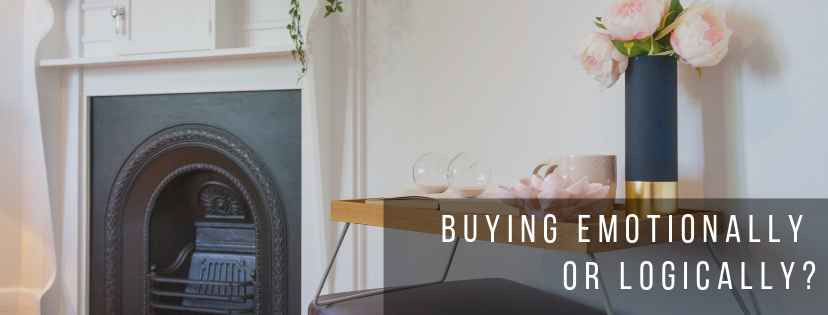
Buyers can mislead themselves if they allow their immediate emotional reaction to conjure a reflex response to a property.
In selling school, all sales people are taught that people buy emotionally and justify logically.
Residential real estate is very emotional. "Home" is one of the strongest emotional words in the English language. But what impact does emotion have on us when evaluating true value? Whilst we all want to have an emotional connection with the property we buy, emotion can cause us to overstate and/or understate the property's true features.
Presentation largely determines the emotional reaction buyers will have toward a home. So whether you are buying or selling, it pays to be aware of the emotional appeal the property does or does not exude. Sellers need to ensure they enhance emotional appeal whilst buyers need to ensure they don't pay for emotional appeal that won't be there on settlement day.
Sometimes the poor presentation of a property will cause the buyer to believe the property is inferior to the reality. Alternatively, sometimes the presentation will glorify the homes features, based on a staged or manufactured presentation.
Investment properties are often good solid properties that have had the cosmetic and emotional appeal diminished. The fundamentals of such properties can be overlooked as emotional homebuyers view what is in front of them on that day, rather than what the property could be with some cosmetic enhancement.
The most poorly presented homes lacking emotional and cosmetic appeal can often be the best "buys".
Conversely, buyers should remember that they are not buying the artwork or furniture when they inspect a home. Ask yourself, how will the home present when the designer furniture is removed? How would the home present with your furniture in it? Is the actual home appealing to you or is it the presentation of the home? Many people hire storage units to de-clutter when selling. So whilst this creates a wonderful presentation on inspection day, how practical is the home?
The more you inspect a home, the more you will see it for what it really is - good, bad or indifferent.
**Written by Peter O'Malley of Harris Partners Real Estate**